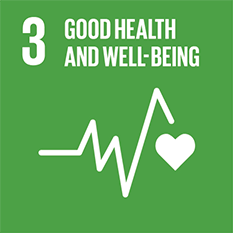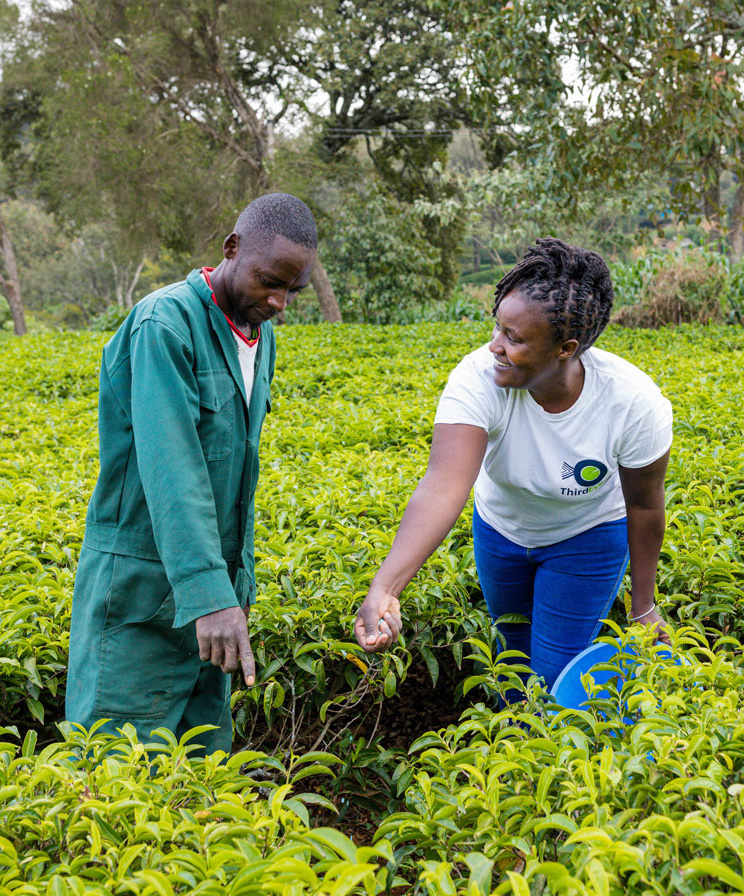 Ensuring healthy lives and promoting well-being at all ages is essential to sustainable development. Poor health threatens the rights of children to education, limits economic opportunities for men and women, and increases poverty within communities and countries around the world. SDG Goal 3 aims to ensure healthy lives and promote well-being at all ages by 2030. While notable progress has been made in advancing health and wellbeing globally, significant challenges remain. Nutrition is a key component to health and well-being. A well-balanced diet providing consistent and diverse nutrition encourages long life, lowers the incidence of disease, and helps sick people recover. In contrast, inadequate nutrition and poor-quality foods can generally cut life span and subject a person to a range of diseases, in particular Non-Communicable Diseases (NCDs).
Ensuring healthy lives and promoting well-being at all ages is essential to sustainable development. Poor health threatens the rights of children to education, limits economic opportunities for men and women, and increases poverty within communities and countries around the world. SDG Goal 3 aims to ensure healthy lives and promote well-being at all ages by 2030. While notable progress has been made in advancing health and wellbeing globally, significant challenges remain. Nutrition is a key component to health and well-being. A well-balanced diet providing consistent and diverse nutrition encourages long life, lowers the incidence of disease, and helps sick people recover. In contrast, inadequate nutrition and poor-quality foods can generally cut life span and subject a person to a range of diseases, in particular Non-Communicable Diseases (NCDs).
Agricultural and food systems must play an increased role in promoting healthier and more sustainable diets for populations all over the world. Good nutrition is crucial to ensuring optimal health as well as physical growth and brain development, especially in children, and helping societies age better. Yet, malnutrition remains one of the world’s most serious but least addressed health problems and a significant contributor to child mortality. Nearly one-third of all children in developing countries are either underweight or stunted, and more than 30% of people living in developing countries suffer from micronutrient deficiencies. Malnutrition is a double burden. While undernutrition continues to cause nearly half of all deaths in children under five, low- and middle-income countries are simultaneously witnessing a rise in childhood overweight and obesity – increasing at a rate 30% faster than in richer nations. In 2014, more than 1.9 billion adults worldwide, 18 years and older, were overweight and more than 600 million were obese. In the same year, 42 million children under the age of five were overweight or obese. To ensure healthy lives and promote well-being we need to focus on nutrition and address all forms of malnutrition.
Additionally, innovative efforts are needed to fight and eradicate a wide range of persistent and emerging diseases, including vector-borne diseases. Vector-borne diseases, such as malaria and dengue, are infections transmitted by the bite of infected arthropod species, such as mosquitoes and ticks. These diseases are commonly found in developing countries with tropical and sub-tropical climates, where access to safe drinking-water and sanitation systems is problematic. Vector-borne diseases account for 17% of the estimated global burden of all infectious diseases. The deadliest vector-borne disease is malaria, which causes about 500 000 deaths and over 200 million infections every year. After decades of progress, malaria cases are on the rise again. The 2017 World Health Organization World Malaria Report showed an estimated 216 million cases of malaria in 2016, an increase of 5 million cases from the previous year. Overall, vector-borne diseases accounted for more than 700,000 deaths worldwide in 2016, and 80% of the global population remains at risk or one or more vector-borne disease. Their burden for society is enormous in terms of health, economic and social costs. These diseases remain a complex issue that existing approaches and methods have not yet been able to fully solve on their own.
Research into novel approaches to improve public health and wellbeing is critical. An example of this is gene drive research which is exploring whether it is possible and appropriate to harness the potential of new technologies to offer complementary, sustainable and cost-effective strategies for controlling the transmission of vector-borne diseases, supporting environmental conservation efforts and supporting agricultural innovation. Gene drive is a genetic phenomenon that occurs in nature and causes a selected trait to spread rapidly through a species via sexual reproduction over several generations. Gene drive works by increasing the likelihood that a modified gene will be inherited by its offspring. Normally, genes have a 50/50 chance of being inherited, but gene drive systems could increase that chance to upwards of 99 percent. This means that over the course of several generations, a selected trait could become increasingly common within a specific species.
Public health is one of the main areas where this research has focused, although other uses are also possible. Proposals have been made which would use gene drive to limit the spread of diseases, particularly those spread by insect vectors, such as malaria. This could be done by inserting a trait a which makes the vector organism unable to host the pathogen, or one which affects the local population dynamics of the host organism to reduce that population. Focusing on good nutrition, addressing malnutrition and researching new and complementary tools to deal with diseases are some of the ways Emerging promotes global health and wellbeing through the clients and projects it supports.
Emerging's Projects in Health

Public Health and Disease Control
Emerging ag is proud to provide communication and engagement support to Target Malaria. Target Malaria is a global research consortium working to save millions of lives from malaria by developing novel vector control methods.
Emerging is the Secretariat of the Outreach Network for Gene Drive Research. Its purpose is to raise awareness of the value of gene drive research for the public good. Emerging supports, in particular, the network with coordination among members, information sharing, and engagement with key stakeholders.
Nutrition
The Prairie Oat Growers Association (POGA) is an organization that represents Canadian oat growers. Emerging has and is still working on various outreach campaigns, including the website Avena Canadiense, which was specifically targeted at Mexican consumers.
Emerging is the Secretariat of the Private Sector Mechanism (PSM) to the United Nations Committee on World Food Security (CFS). The PSM is structured in thematic macro-committees. In the next two years, the PSM is working extensively on nutrition as the CFS is working towards developing a set of Voluntary Guidelines on Nutrition and Food Systems.
Agriculture for Nutrition, Livelihoods and Health
Emerging Ag assisted the Global Dairy Platform (GDP) in coordinating global celebrations for World Milk Day on June 1, 2017 and 2018.
Emerging ag inc assists the GLAD project co-ordinated by the International Livestock Research Institute. The two-year project has helped to raise the profile of livestock in global development discussions and included the development of an outreach strategy. Livestock are powerful, if as yet underutilized, instruments for leveraging the systemic changes we need to meet all of the world’s 17 Sustainable Development Goals. The livestock sector contributes directly to 7 of the SDGs and is particularly central to ending poverty and hunger while creating sustainable food systems globally.
On behalf of the Global Pulse Confederation (GPC), Emerging has been advocating for the establishment of World Pulses Day.
